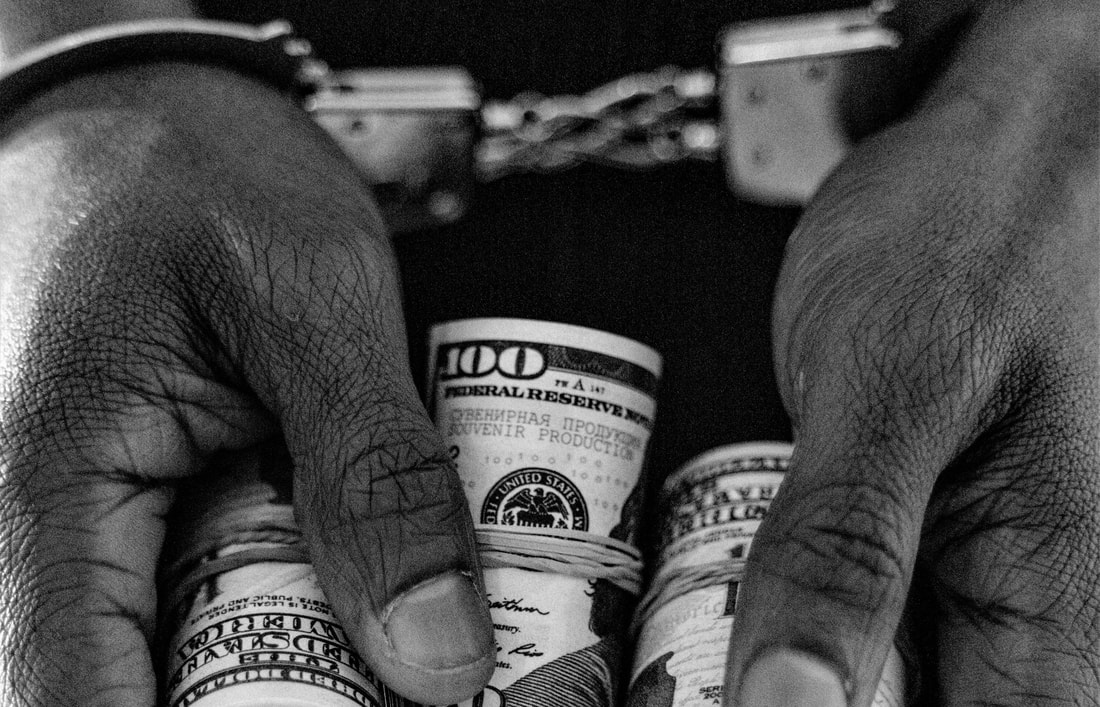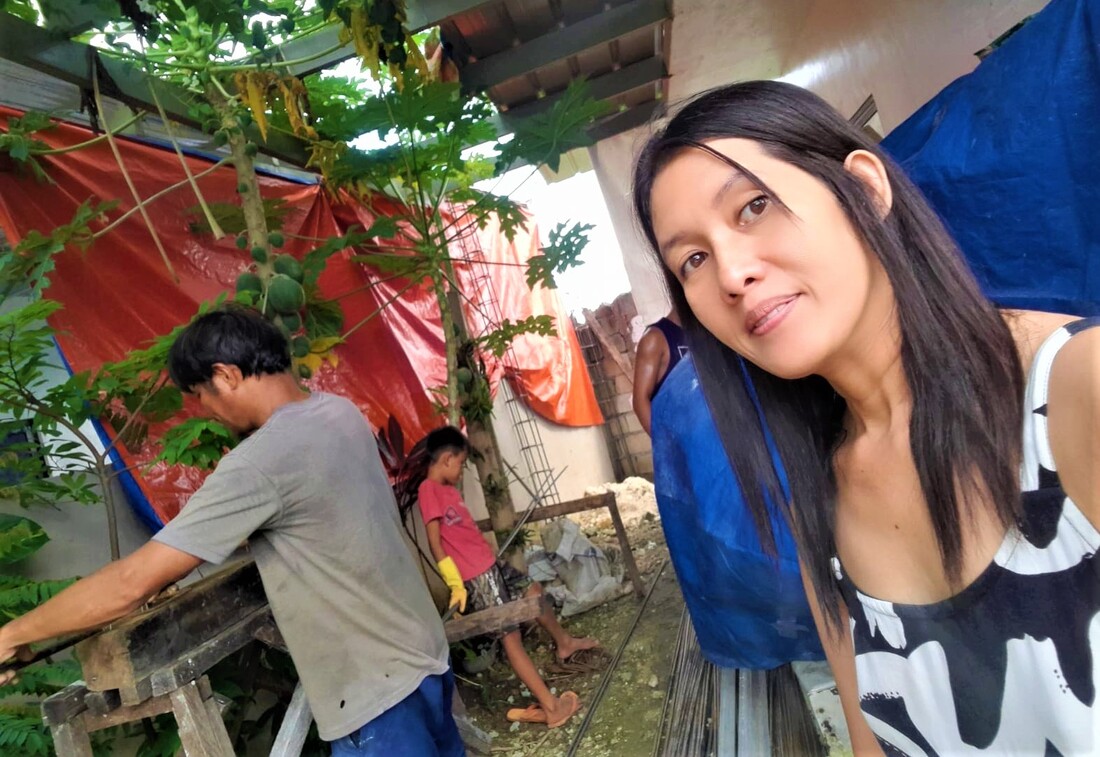|
‘Money – it’s a hit. Don't give me that do goody good bullsh*t.’ (Pink Floyd) ‘When I die, if I leave ten pounds behind me, you and all humanity may bear witness against me that I have lived and died a thief and a robber.’ (John Wesley) Now that’s extreme. In his lifetime, UK Christian preacher John Wesley is estimated to have earned around £30,000 (roughly equivalent to £1,000,000 today). When he died in 1791, 47 years after having written these astonishing words (above), he was found only to have a few coins left in his pocket. He had given everything away. Wesley believed that to follow Jesus meant intrinsically to use whatever resources God had given him to help others in need. He challenged fundamentally those who believed that material acquisition was a blessing from God to enjoy for their own benefit. As his own income increased, he stayed at the same simple baseline and gave even more away. I find Wesley’s example incredibly humbling and challenging. I live in a society that is individual-, wealth- and future-orientated. An implicit cultural imperative is that we should each make as much money as we can; both so that we can improve our own quality of life today and prepare for the future, confident that we will have plenty to spend then as now. I once had a long journey home from working among the poor in Cambodia. An intrigued Indian Hindu businessman travelling next to me on the plane confessed in bemusement that he found my work for a Christian NGO shameful: ‘Shouldn’t you be earning as much money as possible to increase your own family’s wealth?’ He had a point. To take care of one’s own family is, of course, an important, universal, human value. Yet, still, our worldviews collide. I find my life inspired by a different ethic, exemplified by Jasmin, a radical follower of Jesus among the poor in the Philippines: ‘Whatever status or power you have, use it for those who are vulnerable; whatever money you have, use it for the poor; whatever strength you have, use it for the weak; whatever hope you have, use to bring hope to those who live without hope. Speak up for justice and truth – whatever the cost. Pray.’ That isn’t about self-righteousness. It’s not a denial of the visceral tug of anxiety and security. It is about choice, decision and stance. What beliefs, values and principles guide your life? What do they look like in practice?
20 Comments
‘I could hear an inner voice saying to me, 'Stand up for righteousness. Stand up for justice. Stand up for truth.’ (Martin Luther King: shot dead for preaching love, equality and peace). I feel sick. A 16 year old girl. Deemed: enemy of the state. Beaten to bloody death by insecure security forces, the brutal fisted hands and booted feet of a repressed, repressive regime. Her crime – now read this carefully because this is serious: she…burned…a…headscarf. Death penalty. No mercy from merciless leaders who claim so cynically to represent the merciful. Nika Shakarami. Remember the name. She shines as a bright emblem of resistance and hope, alongside Malala Yousafzai – the 15 year old girl shot in the head for daring, so shockingly, to say: it’s OK for girls to go to school. Remember too: Sophie Scholl, the 21 year old young woman, murdered violently by violent psychopaths for advocating non-violence in another era. God help us. Please pray. ‘Anticipation is a gift. Anticipation is born of hope.’ (Steven L. Peck) Antoine de Saint-Exupéry tells the entrancing, magical story of a Little Prince from a faraway world who visits Earth and makes friends with a wild fox. When making preparations for his visits, the fox explains to the Prince earnestly: ‘If you come at four in the afternoon, I'll begin to be happy by three. The closer it gets to four, the happier I'll feel. By four I'll be excited and worried; I'll discover what it costs to be happy! But if you come at any old time, I'll never know when I should prepare my heart.’ The fox’s yearning resonates with a love poem by an unknown author: ‘There’s a moment between a glance and a kiss where the world stops for the briefest of times. And the only thing between us is the anticipation of your lips on mine. A moment so intense it hangs in the air as it pulls us closer. A moment so perfect that, when it comes to an end, we realize it’s only just beginning.’ It’s that not-quite-yet sense of an I-can-almost-touch-it moment; filled with tension, desire and anticipation. Dialectical behaviour therapy (DBT) draws on the visceral power of this anticipation phenomenon in its intriguing half-smile technique. An anxious person is invited to begin to start to smile – without allowing it to become a full smile – then to pause and hold the half-smile for a few…brief…moments. Subconsciously, we associate the physical sensation of an almost-smile with an anticipation of a positive mood and experience, and this can create a positive shift in how we feel. How well do you deal with waiting, with harnessing anticipation? [See also: Wait; and Instant] 'Now kings will rule and the poor will toil, and tear their hands as they tear the soil. But a day will come in this dawning age, when an honest man sees an honest wage.' (U2) The topic of ethics can sound and feel abstract, esoteric. Something confined to philosophy lectures. The mysterious realm of armchair academics. What does it look like in practice? Why has it become such a critical issue for organisations and societies now? Jasmin, a Filipina, is from the poorest of the poor. To her amazement, and as an answer to prayer, she finds herself with an opportunity to build a small kitchen. She looks for contractors to do the work. The first question she checks is whether the labourers are paid a fair wage. In a country and industry marred by corruption, exploitation is rife. The second is whether they will build with love, if they will pour their hearts as well as their construction skills into achieving a good result. This is so different to a purely commercial transaction. It’s about spirit, attitude – and trust. Against this backdrop, I find it helpful to think about ethics, at its simplest, as values with a moral dimension. For Jasmin, it’s about lifestyle, relationship and stance. Stance infers a choice. We are faced with a decision-point, a junction in a metaphorical road. Pragmatic wisdom would suggest a weighing up of costs against benefits. Ethics would ask who is affected and how? What would be ‘good’ and ‘right’? Why this, and why now? I look up and look around: corruption; media manipulation; climate change; environmental disaster; poverty; human rights abuse; war. How did we get here? I see the poor and vulnerable affected the most and the worst. Yet still, closer to home and within me: a temptation to put my own interests first; to close my eyes; to dull my heart; to deceive my mind; to choose the easier and expedient path. So, what does ethics look like? I ask Jasmin and her life speaks: ‘Pray, love and take a stance.’ ‘It’s not what you look at that matters, it’s what you see.’ (Henry David Thoreau) Psychologist Albert Ellis, widely regarded as the founding father of what has today evolved into Cognitive Behavioural Therapy, noticed that different people responded differently to what were, on the face of it, very similar situations. Previously, you might have heard, ‘Person X feels Y because Z happened’. It assumed a direct causal relationship between emotions and events. Ellis’ observations challenged this, proposing that something significant was missing in the equation. After all, if this assumption were true, we could expect that everyone should feel the same way in circumstance Z. Curious about this, Ellis concluded that the critical differentiating and influencing factor that lays between emotions and events is belief. It’s what we believe about the significance of an event that affects most how we feel in response to it. Here we have person A who hears news of a forthcoming redundancy with fear and trepidation. He believes it will have catastrophic financial consequences for himself and his family. Person B receives the news with positive excitement. She believes it will provide her with the opportunity she needs to pursue a new direction in her career. Drawing on this insight, organisational researchers Lee Bolman & Terrence Deal proposed that, in the workplace, what is most important may not be so much what happens per se, as what it means. The same change, for instance, could mean very different things to different people and groups, depending on the subconscious interpretive filters through which each perceives it. Such filters are created by a wide range of psychological, relational and cultural factors including: beliefs, values, experiences, hopes, fears and expectations. This begs an important question: how can we know? Hidden beliefs are often revealed implicitly in the language, metaphors and narratives that people use. To observe the latter in practice, notice who or what a person or group focuses their attention on and, conversely, who or what appears invisible to them. Listen carefully to how they construe a situation, themselves and others in relation to it. Inquire in a spirit of open exploration, ‘If we were to do X, what would it mean for you?’; ‘If we were to do X, what would you need?’ This is about listening, engagement and invitation. Attention to the human dimension can make all the difference. Few images have more powerful emotional resonance for me than that moment at which the WW2 Allies detonated explosives under a huge marble swastika at the Zeppelinfeld stadium in Nürnberg, Germany. It was the place where, just before the war, Hitler and his followers had held their infamous Nazi rallies. The rallies had proved a potent propaganda weapon, convincing Nazi supporters of their own ‘supremacy’ and intimidating their enemies into fearful submission. The public destruction of this infamous symbol marked the impending final demise of the deranged Nazi myth and its psychopathic regime, and the end of by far one of the worst eras in human history. I can only imagine how it must have felt for those who had suffered so terribly to witness, at last, this emerging glimmer of hope. Similar evocative and symbolic moments were soon to follow with a Soviet flag over the German Reichstag and an American flag raised on Iwo Jima. There’s something about these images-as-symbols that capture and express a wider human story and experience. They carry and convey powerful psychological, cultural and emotional meaning for those who understand and identify with what they represent. Other well-known examples of symbols include the Christian cross as a sign of God’s love and salvation through Jesus Christ or, conversely, ominous ‘Z’ insignia on Russian military vehicles during the 2022 invasion of Ukraine. What symbols have a particular resonance for you – and why? It’s not often that I feel so vulnerable. This Saturday night was different. I was walking home from my parents’ home with my daughter when we saw a large group of teenagers ahead. ‘It’s OK’, I said, ‘Just keep walking and we’ll be fine.’ The young men looked around 15 years old and, based on the social-psychological principle that teenagers tend normally only to notice other teenagers – unless deliberately looking out for others – I assumed that we would be, to all intents and purposes, invisible to them. Unfortunately, this turned out to be one of those occasional exceptions to the rule. It started with lone voices hurling abusive comments at us. Then others joined in. Their chants got louder and louder in threatening unison as they now started to follow closely behind us. ‘Don’t look back’, I said, ‘Just keep walking. They’re trying to provoke a response.’ We both tried to continue, to not-show anxiety, yet my heart was pounding and my mind was racing. What if they were to become more aggressive? What if they were to become physically violent? I looked around for potential escape routes; driveways and doorways into which I could usher my daughter hurriedly if things got worse. As we progressed, the group stopped their pursuit and, thankfully, I heard their voices fall further back. We discovered afterwards on social media that ‘a large group of teenage neo-Nazis’ had been reported as harassing people in that area that night, and that the police had been called out. As I reflected on how I had felt, I was aware of an unnerving sense of powerlessness. How to protect my daughter, as a father? How to handle such a large gang, psyched-up in pack mentality? How to respond to these young people, as a follower of Jesus? How to view these antagonists, as trouble or as trouble-d? |
Nick WrightI'm a psychological coach, trainer and OD consultant. Curious to discover how can I help you? Get in touch! Like what you read? Simply enter your email address below to receive regular blog updates!
|










 RSS Feed
RSS Feed